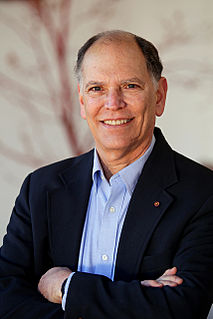A Quote by Preet Bharara
History has shown that one cannot legislate a culture of integrity. And yet, one of the paramount responsibilities and challenges of corporate leadership is to ensure such a culture.
Related Quotes
Startup culture fosters laughter, debate, and a passionate, non-politically-correct focus on getting things done. And this startup of culture is something entrepreneurs struggle to maintain as the business grows. To ensure this environment continues, create a strong foundation and ensure everyone is on board.
The success of corporate mentorship programs developed by some of the Great Teams in business demonstrates how powerful this concept can be and what a difference it can make. As General Electric has shown, when a corporate culture includes mentorship, the end result is a dynamic learning environment with leaders constantly shaping leaders.
Since the 1960s, mainstream media has searched out and co-opted the most authentic things it could find in youth culture, whether that was psychedelic culture, anti-war culture, blue jeans culture. Eventually heavy metal culture, rap culture, electronica - they'll look for it and then market it back to kids at the mall.
Many teachers of the Sixties generation said "We will steal your children", and they did. A significant part of America has converted to the ideas of the 1960s - hedonism, self-indulgence and consumerism. For half of all Americans today, the Woodstock culture of the Sixties is the culture they grew up with - their traditional culture. For them, Judeo-Christian culture is outside the mainstream now. The counter-culture has become the dominant culture, and the former culture a dissident culture - something that is far out, and 'extreme'.




































